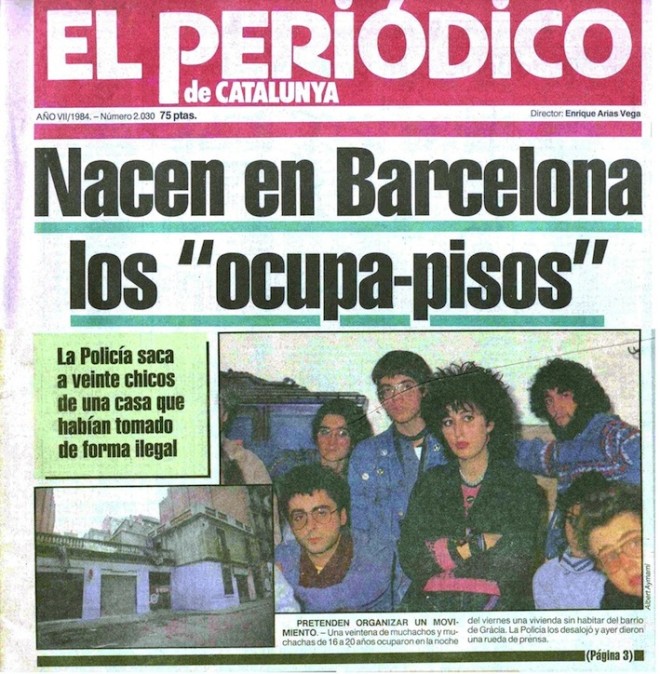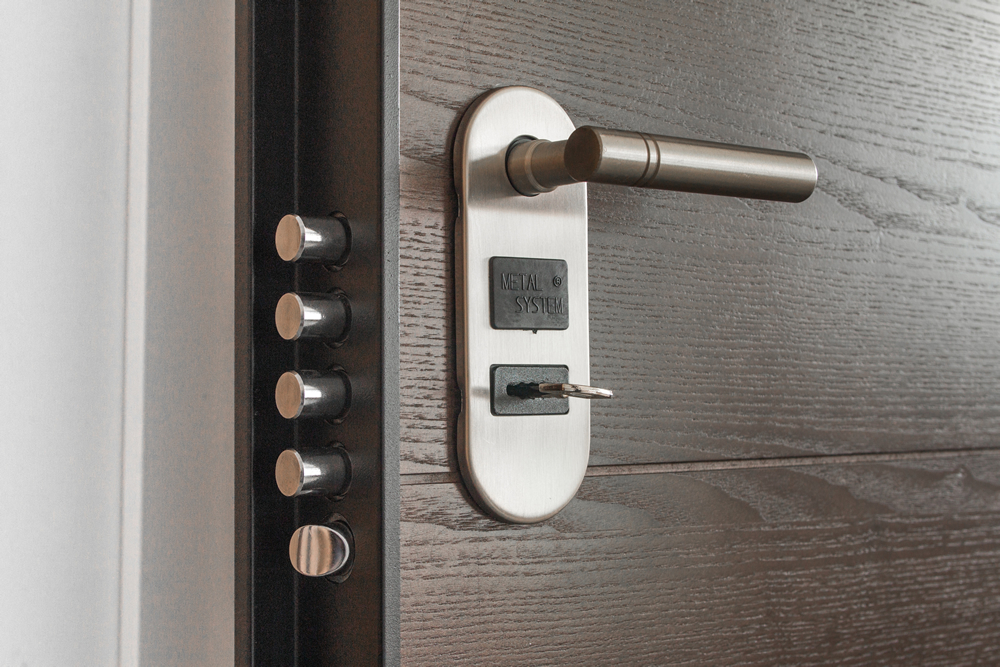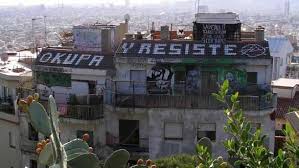Okupas in Barcelona: Homeless or Squatters? A True Story

The word “Okupas” or “Squatters” is the most severe threat for investors who seek to buy a flat in Spain. Besides investors, property owners, especially in Catalonia, are about to face this problem. But how can it be possible? How can you prevent your house from okupas in Barcelona?
Imagine that you have hired a real estate agent in Barcelona and invested in buying a flat. You have not rented out your house or have not been in your home for some time. After a while, you return and want to look at your home. And what do you see, someone has occupied your house! In other words, you have faced the okupas in Barcelona.

You call the police, but they can’t do anything since the law ties their hands. These are not from a movie script but from Spain. In this article, we will have a closer look at the Okupas problem.
What is the Okupa Movement?
The Okupa movement or squatting is the action of occupying an abandoned area of land or a building, usually residential, that the okupa does not own, rent, or otherwise have legal permission to use.
Even though we mainly focus on the facts in Spain, squatting occurs worldwide and tends to occur when poor and homeless people find empty buildings or land for occupying.
Who are the Okupas in Barcelona?
There’s a professional mafia in Barcelona that breaks into vacant apartments and changes the lock on the door. With their tools and experience, they gain entrance in a matter of minutes. These ‘Okupas’ don’t need a place to live; they want money.

However, the purpose of this movement’s existence was just the opposite. In the first Okupa case, which took place in Barcelona in December 1984, the purpose of the squatters was to live there. The occupation lasted only a few hours, as they were removed almost instantly by the police. When the movement hit the newspapers, it inspired many young Spaniards to occupy homes in Bilbao, Madrid and Valencia.
According to the Spanish Home Office statistics, the number of cases of adverse possession has doubled since 2016 and increased 20% between 2018 and 2019. Last year, cases for okupas in Barcelona were announced as over 5,000. And the situation has been rising by the coronavirus pandemic.
A true story of Spanish Squatters
Ann owns an apartment in the Gothic Quarter. In December 2019, she went on vacation and couldn’t re-enter Spain due to COVID-19. In April 2020, someone broke into her apartment and changed the lock on the door.
They didn’t move in; they listed the flat “for rent” on a website they created that showed several other stolen apartments. The website shows the name of a legitimate agency.
Jose, a prospective renter, sees Ann’s flat on the website, calls the criminals, and they meet at Ann’s apartment. The criminal agent says he represents the legitimate agency and shows Jose a lease written on the agency’s letterhead. This is also stolen, and the legitimate agency has no knowledge of this.
Jose decides to rent the flat and signs the lease. The criminal signs with the legitimate agency’s stamp, and it all looks perfectly legal. Jose then pays the criminal 3,000€ for a deposit and first-month rent.
Then the criminal disappears, never to be heard from again. Two weeks later, Jose filed a complaint with the local police (Mossos d’esquadra ). They investigate, but there’s a slim chance of making an arrest.
Ann, meanwhile, returns to Barcelona in July and finds the lock changed. She talks to an attorney about evicting the squatters, but they’re not squatters; they entered legally and are protected by law.
She’s forced to hire a company that specializes in expelling squatters. They try to negotiate a ‘settlement’ whereby Ann pays Jose to leave. Pain in the neck? Huge. Expensive? Yes.
How can you prevent your house from okupas in Barcelona?
In most countries, squatters get tossed in the street; but they’re protected by law in Barcelona. In fact, Ann was told not to call the police as once reported, the squatters get complete legal protection even if they broke into the property. It’s better to hire a private company. So, there might not be legal ways to solve it. Hence, let’s look at some possible solutions:

- Alarm systems: Install an alarm system. But beware, these are professionals. They try to cut off a building’s electrical service so they can enter an apartment inside without an alarm activating.
- Anti-okupa door: Install an ‘anti-okupa’ door for your apartment. They cost about 2,000€. You should also install one in the building.
- Watchful neighbours for squatters. Being a friend with your neighbour may be useful for this case. Therefore, if you have neighbours who are sensitive to surroundings, they can notice all the unusual acts on your property while you are away and notify you immediately.
- Hiring security companies against okupas: These types of companies offer a standard package like Securitas Direct or Prosegur, who typically charge an installation fee of up to €500, and a monthly quota from €29 to €50.
Also the signs of “for sale” or “for rent” are calls for attention to squatters in Spain. Avoid putting them.
What to do if your property is occupied by squatters in Barcelona?
The ‘Okupa’ laws in Barcelona are creating a prosperous business for organized criminals. They ride scooters in the Gothic Quarter and other neighbourhoods looking for vacant flats. It’s getting worse and worse. Does Mayor Ada Colau realize this?
Coming to the question, the solution for this case depends on how quickly you discover them. Suppose you catch squatters breaking in your property or shortly after (within a few hours), it makes sense to call the police, as you can charge okupas with “allanamiento de morada”. Otherwise, the police will probably not respond.
Another possible solution would be to try to negotiate with the okupas, but that is also risky. There are two types of okupas: principled and criminal.
If the squatters are the principled type, they’re not really into it for the money and probably won’t tend to bargain. If they’re the criminal types, they’re definitely in it for the money, and they’re going to take your bribe. However, that’s no guarantee that they won’t come back, mainly because they know you’re going to pay them to leave again.
The safest neighborhoods in Barcelona
You may have been frightened after learning the truth about the Okupas, which is pretty normal. The okupas movement is very widespread in Barcelona, so it is convenient to live in a safer and more decent neighborhood in addition to taking some security measures.
- Hire a Buyer’s Agent as a trained professional who knows the real estate market and the safest neighborhoods in Barcelona to try to avoid the squatter problem.
- Research the area. Remember that, vigilant neighbours can protect your property from okupas.
- Visit the property and observe the security measures.
If you have decided to buy a property in Barcelona and you are confused by the Okupas, please do not hesitate to ask Mark Carr by calling at 664 665 365 or email info@spainadvisors.com and see how we can help you.





Deja una respuesta
Lo siento, debes estar conectado para publicar un comentario.